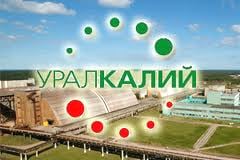Uralkali reduces joint business activities with BPC over sanctions
33- 17.04.2013, 13:14

Uralkali refuses to cooperate with the Belarusian Potash Company (BPC) due to sanctions and unreliability of partners.
After founding the Belarusian Potash Company (BPC) – a joint venture trader – in 2005, Uralkali and Belaruskali received the status of global monopolists accounting for 41% of the global market of potash fertilisers. Trade via Belarus has begun to press on the companies recently and they decided to found a new joint trader, this time in Switzerland. Uralkali even preempted the shift of trade flows: the company sold three quarters of its export volume through its own trader Uralkali Trading (Switzerland), Russian RBK Daily reports.
In 2005, then owner of Uralkali Dmitry Rybolovov managed to convince Aliaksandr Lukashenka to combine sales of the two potash producers in the joint Belarusian Potash Company. The idea was effective: The cartel repeatedly proved that its can dictate its terms even to such big importers as China and India.
In 2012, Uralkali exported 77.8% of its products (7.28mn tonnes of potassium chloride against 2.08mn tonnes for Russia's domestic use). Though the company reaches foreign markets through the BPC (owning a 50% stake, while Belaruskali and the Belarusian Railway Company have 45% and 5% stakes respectively), a part of the export goes through its wholly owned Swiss subsidiary Uralkali Trading (UKT).
As follows from Uralkali's investment project, there was a significant redistribution of sale volumes between the BPC and UKT in 2012. Supplies through the BPC reduced by 36% in comparison with 2011 reaching 1.6mn tonnes. It is less than 22% of Uralkali's export sales. The remaining 78% were exported through UKT (almost 5.7mn tonnes). In 2011, the total amount of sales through UKT and Silvinit's traders was 4.55 million tonnes.
The company tries to redistribute sale volumes between the BPC and UKT depending on market conditions, customers' demand and logistical feasibility, Uralkali explains in the company's prospectus. However, the company doesn't say why the distribution looked exactly so in 2012.
One of the possible reasons is Uralkali's loan obligations. For example, Uralkali took a $300mn loan from a pool of banks led by Societe Generale and Rosbank on security of UKT in 2011.
Besides, Uralkali reminds that a number of Belarusian top officials, including Aliaksandr Lukashenka, are subject to the US sanctions. Having found the Belarusian elections of 2006 non-democratic, the American administration froze assets of Belarusian officials and blocked accounts of Belneftekhim oil company in the USA. Sanctions were later imposed on Belneftekhim's subsidiaries. After the 2010 elections, the EU introduced visa sanctions against Belarusian officials led by Aliaksandr Lukashenka. The measures didn't affect the BPC, but Belaruskali is owned by Belneftekhim and Uralkali doesn't know how the foreign authorities may regard the cooperation of the BPC, Belaruskali and Uralkali. Uralkali provides all supplies to Europe and the US through UKT now.










